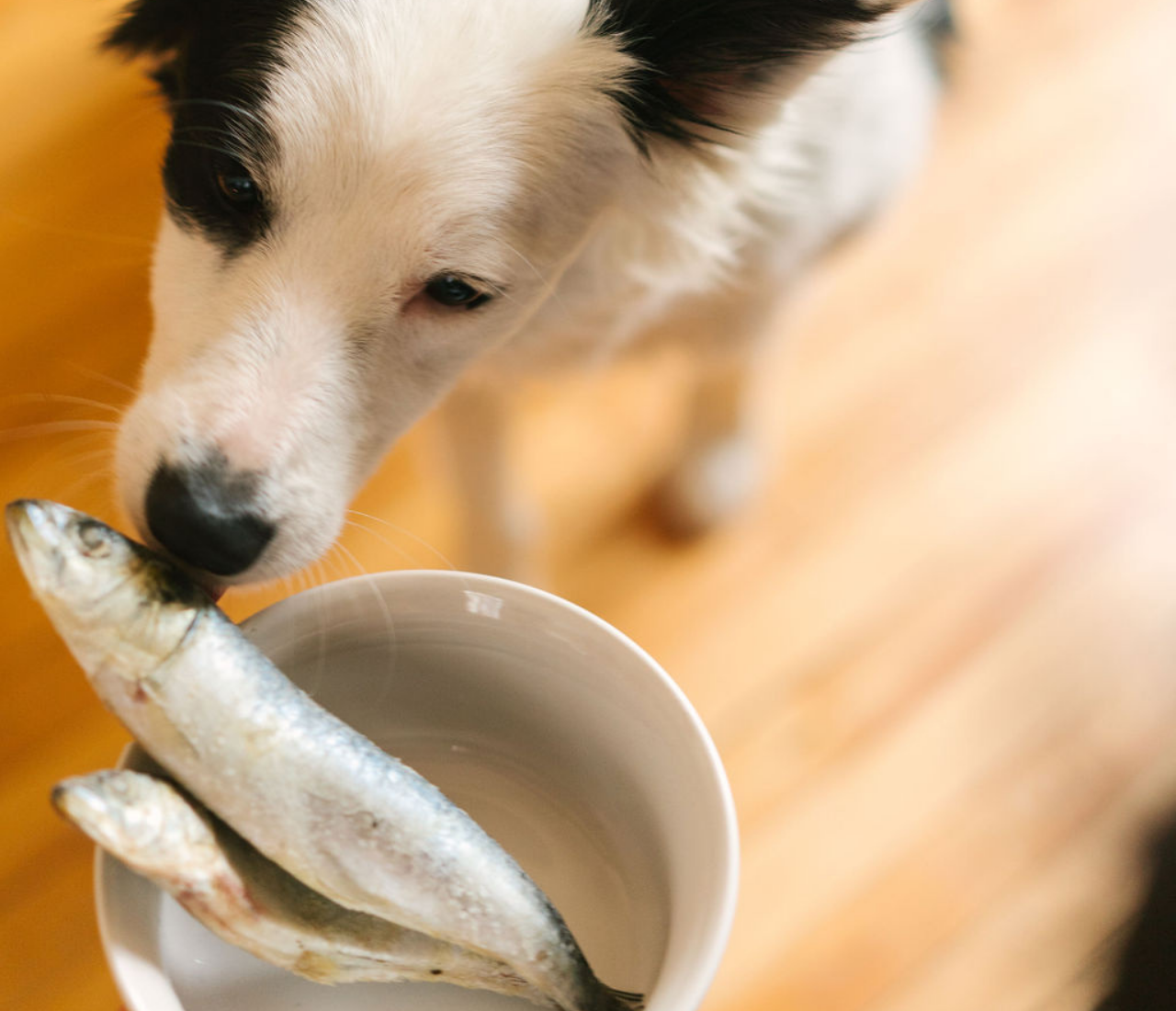Imagine walking up to your aquarium, eager to see your vibrant fish darting around, only to find them uninterested in food. It’s frustrating, isn’t it?
You’ve carefully selected the finest food and ensured their environment is pristine, yet your pet fish seem to have lost their appetite. You can’t help but worry about their health and happiness. We’ll dive into the possible reasons behind this puzzling behavior.
You’ll discover practical solutions to get your aquatic friends back to their lively selves. Understanding your pet fish’s needs can transform your fish-keeping experience from stressful to joyful. Keep reading to uncover insights that will not only answer your pressing questions but also enhance your bond with your underwater companions.
Common Reasons For Loss Of Appetite
Pet fish not eating can be concerning. Various factors may cause this issue. Identifying the root cause helps restore their appetite. Understanding the environment, water quality, and diet is key.
Environmental Stressors
Fish are sensitive to their surroundings. Sudden changes stress them out. Moving to a new tank or adding new tank mates can be stressful. Overcrowding also creates stress. Each fish needs its own space. Stress often leads to a loss of appetite.
Water Quality Issues
Water quality greatly affects fish health. Poor water conditions lead to stress and illness. Ammonia and nitrate levels must be checked regularly. A sudden change in temperature can also be harmful. Clean water is crucial for a healthy appetite.
Inadequate Diet
Fish need a balanced diet to thrive. Feeding them the wrong food affects their health. Variety is important to meet nutritional needs. Overfeeding or underfeeding can also cause issues. Ensure the diet matches the species’ needs.

Credit: www.foodfurlife.com
Health Concerns And Illnesses
Pet fish refusing to eat often signal underlying health issues. Stress, illness, or poor water quality might be the cause. Observing their behavior can help identify problems early.
When your pet fish stop eating, it can be a major cause for concern. Often, the root of the issue lies in health concerns and illnesses. Understanding these potential health problems is crucial for any responsible fish owner. By recognizing the signs early, you can take swift action to restore your aquatic friends to their healthy selves.
Identifying Signs Of Disease
Knowing what to look for is the first step in identifying if your fish are sick. Watch for unusual behaviors such as lethargy, hiding, or erratic swimming. Physical signs might include discoloration, spots, or visible wounds. When my goldfish, Goldie, started staying at the tank’s bottom and lost her vibrant color, I knew something was amiss. These changes are your fish’s way of signaling that something isn’t right.
Parasites And Infections
Parasites and infections can be common culprits behind a fish’s loss of appetite. Parasites like Ichthyophthirius, known as “Ich,” can cause white spots on their bodies. Bacterial infections may lead to fin rot or ulcers. Regularly check your fish for these signs, as early detection can save their lives. Consider if you’ve introduced new fish or plants recently, as these can bring unwelcome guests into your tank. Is your tank’s water quality up to par? Poor water conditions can exacerbate health issues, making your fish more susceptible to parasites and infections. A simple water test can reveal if something is off. Adjusting the water parameters might be the key to getting your fish to eat again. Keep your fish healthy by maintaining clean, well-balanced water, and they’ll reward you by thriving in their aquatic home.
Behavioral Factors
When your pet fish refuse to eat, it can be frustrating and worrying. Several behavioral factors might be influencing their appetite. Understanding these can help you pinpoint the issue and take appropriate action to ensure your fish live happily and healthily.
New Tank Syndrome
Moving your fish into a new tank can be quite unsettling for them. They might feel stressed due to unfamiliar surroundings. Stress often leads to a loss of appetite.
Think about how you feel when you move to a new place. It’s natural to feel a bit out of sorts. Fish experience similar emotions. If you’ve recently changed their tank, allow them some time to adjust.
Observe their behavior closely. Are they hiding more than usual? This could be a sign they are still acclimating. You might want to dim the lights or add some plants to make the environment more welcoming.
Aggressive Tank Mates
Sometimes, the problem isn’t the tank itself but the other fish living in it. Aggressive tank mates can intimidate your pet fish, making them too scared to eat.
Watch how your fish interact. Is there bullying happening? If a fish is constantly harassed, it may retreat and avoid feeding times. Consider separating aggressive fish or adding barriers to give your timid ones a chance to eat in peace.
Have you ever had a bossy coworker who made you feel uncomfortable? Fish can feel the same way. Reducing aggression can lead to a more harmonious tank environment and improve your fish’s appetite.
Could your fish be trying to tell you something through their behavior? Understanding these factors is key to nurturing a healthy tank and happy fish. Addressing these issues may not only solve the feeding problem but also enhance your fish’s overall well-being.

Credit: faimmuseau.com
Improving Tank Conditions
Pet fish may stop eating due to stress or poor water quality. Check the tank’s temperature and pH levels. Ensure there’s proper filtration and regular water changes.
Improving the conditions in your fish tank is crucial when your pet fish are not eating. A well-maintained environment can significantly impact your fish’s health and appetite. Let’s dive into some actionable steps to enhance your tank conditions and encourage your fish to eat.
Maintaining Optimal Water Parameters
Ensuring the water in your tank is clean and balanced is essential. Check the pH levels regularly; most fish prefer a neutral pH around 7.0. Temperature plays a vital role too. Fish are cold-blooded, and a sudden change in water temperature can shock them and reduce their appetite. Invest in a reliable aquarium heater to maintain a consistent temperature. Regular water changes are important. Replace about 20% of the water weekly to keep it fresh and free from harmful toxins. This simple routine can make a world of difference.
Creating A Stress-free Environment
Stress is a silent appetite killer for fish. A crowded tank can stress them out, so ensure there’s enough space for each fish to swim comfortably. Consider the tank’s decor. While plants and ornaments add beauty, too many can create hiding spots that make your fish feel trapped. Arrange them thoughtfully, providing open areas for free swimming. Noise and vibrations can also disturb your fish. Place the tank in a quiet area away from high traffic zones in your home. Have you ever noticed how peaceful the fish seem when the room is calm? Improving tank conditions is not just about technology or equipment; it’s about understanding your fish’s needs. By making these small changes, you’ll likely see a positive shift in their behavior and appetite. Are your tank conditions optimal for your fish to thrive?
Diet And Feeding Adjustments
Pet fish can sometimes stop eating. This is worrying for fish owners. The diet and feeding routine might need a change. To ensure your fish are healthy, consider their diet first. Adjusting what and how you feed them can help. Let’s explore some practical steps.
Choosing The Right Food
Not all fish food suits every fish. Tropical fish need specific nutrients. Goldfish have different needs. Research the species of your fish. Find foods that match their dietary requirements. Also, consider the form of the food. Some fish prefer flakes. Others like pellets or live food. Offering a variety can encourage eating.
Establishing A Feeding Routine
A consistent feeding routine is vital. Fish thrive on regular schedules. Feed them at the same times each day. This helps them anticipate meal times. Avoid overfeeding. Too much food can cause water issues. Offer small amounts they can consume in a few minutes. Monitor their behavior during feeding. Adjust the routine if necessary.
When To Seek Professional Help
Seeing your pet fish not eating can be worrying. It’s essential to know when to seek professional help. Many factors could cause your fish to lose appetite. Some issues might be minor, but others need expert attention. Recognizing these signs early can save your fish’s life.
Consulting A Veterinarian
A veterinarian can provide valuable insight into your fish’s health. They can identify underlying health problems causing the lack of appetite. A vet can run tests to check for diseases and infections. They might suggest treatments or dietary changes. Always consult a vet if your fish shows signs of illness.
Finding A Fish Specialist
Fish specialists have in-depth knowledge of aquatic animals. They offer more specific advice compared to general vets. Finding one may involve contacting local pet stores or aquariums. Specialists understand the unique needs of different fish species. They can recommend the best environment and care practices.

Credit: www.albatrosbooks.com
Frequently Asked Questions
Why Won’t My Fish Eat Their Food?
Fish may not eat due to stress or poor water quality. Check tank conditions.
How Can I Encourage My Fish To Eat?
Try offering different food types. Ensure the environment is calm and clean.
Is It Normal For Fish To Skip Meals?
Yes, sometimes fish skip meals. It can be stress-related or due to a new environment.
Could Illness Cause My Fish To Stop Eating?
Yes, illness can reduce appetite. Look for other signs like lethargy or spots.
What Should I Do If My Fish Refuse Food?
Check water quality and temperature. Try varying diet. Consult a vet if needed.
Conclusion
Finding out why your pet fish aren’t eating can be stressful. Check water conditions first. Temperature and cleanliness are crucial. Observe fish behavior for illness signs. Changes in diet can help. Try different food types. Sometimes, fish need time to adjust.
Patience is key. Consult a vet if problems persist. Remember, healthy fish have better appetites. Proper care ensures their well-being. Keep monitoring their environment. Small changes can make a big difference. Happy fish, happy life.





